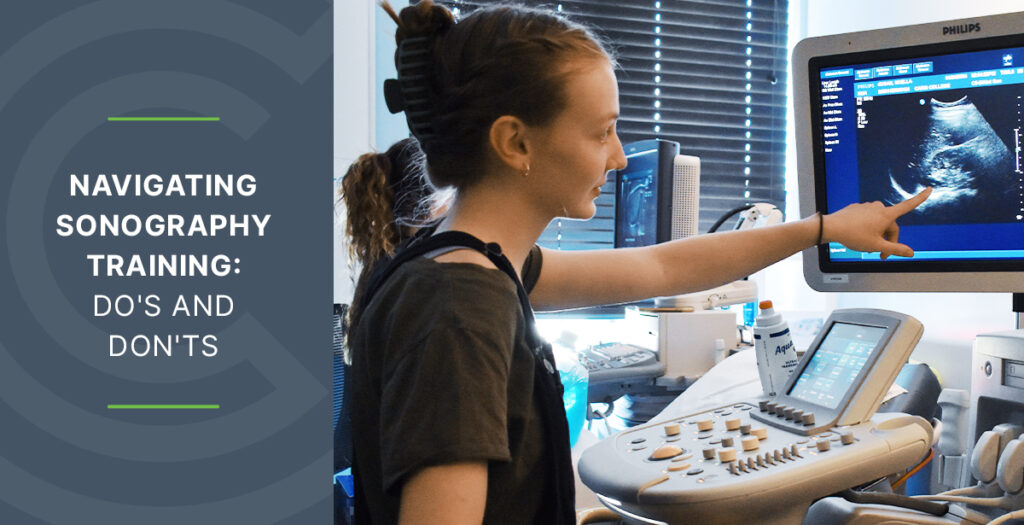
Navigating Sonography Training: Do’s and Don’ts
Embarking on a career in sonography is an exciting and challenging journey. As you navigate through your sonography training, knowing the best practices to help you succeed and avoiding common pitfalls that could hinder your progress is essential. Here are some key dos and don’ts to remember as you pursue a career in cardiac sonography.
Do: Prioritize Hands-On Experience
One of the most critical aspects of navigating sonography training is gaining hands-on experience. Actively participate in clinical rotations and seek opportunities to practice with the latest sonography equipment. This experience is invaluable in building the skills and confidence needed to excel in your career.
Don’t: Underestimate the Importance of Anatomy and Physiology
A thorough understanding of anatomy and physiology is crucial in sonography. Many students need to focus more on technical skills and pay attention to the foundational knowledge of the body’s workings. Remember that a strong grasp of anatomy and physiology will enable you to interpret sonographic images accurately and provide the best care to your patients.
Do: Stay Up-to-Date with Technological Advances
Sonography is rapidly evolving, with new technologies and techniques emerging regularly. One of the best ways to navigate your sonography training is to stay informed about these advancements. Subscribe to industry journals, attend workshops, and participate in continuing education courses. Keeping up with the latest trends will give you a competitive edge and enhance your career prospects.
Do: Build Strong Communication Skills
Effective communication is key in healthcare, and sonography is no exception. Try to clearly explain procedures to patients and be receptive to their concerns. Building rapport with patients will enhance their experience and help you get the best images during exams.
Don’t: Neglect Self-Care
Sonography can be physically demanding, with long hours of standing and repetitive motions. It’s important to take care of yourself. Practice proper posture, take breaks, and be mindful of ergonomics to avoid strain injuries. Remember that self-care is just as crucial as patient care.
Do: Embrace Constructive Feedback
Feedback from instructors and supervisors is an invaluable tool in your training. Be open to constructive criticism and use it to improve your technique and knowledge. In clinical rotations, treat feedback as a learning opportunity to refine your skills.
Don’t: Cram Before Exams
Sonography requires a deep understanding of both theoretical and practical elements. Avoid cramming the night before exams or assessments. Instead, use consistent study habits throughout your training to retain and apply information effectively in practice.
Do: Join Professional Organizations
Becoming a member of professional sonography organizations, such as the Society of Diagnostic Medical Sonography (SDMS) or the American Society of Echocardiography (ASE), can provide access to educational resources, networking opportunities, and career development tools. These memberships are beneficial for staying connected and advancing in the field.
Don’t: Limit Your Learning to the Classroom
While classroom education is essential, you can learn a lot from real-world experiences. Seek out mentors in the field, ask to shadow experienced sonographers, and engage in professional events. These experiences will help deepen your understanding and prepare you for a career in Sonography.
Navigating sonography training can be challenging, but following these do’s and don’ts can set yourself up for success. At Caris College, we provide our students with the knowledge, skills, and support they need in the field of cardiac sonography and general sonography. Ready to take the next step? Visit us today to learn more about our programs!
More on sonography training